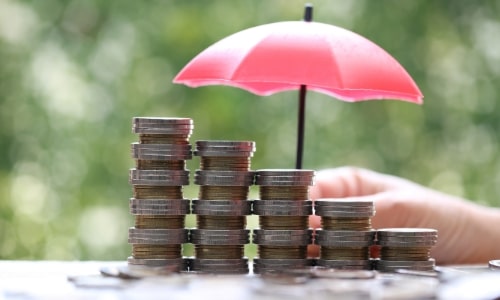The National Loans Scheme Explained
Personal Loan up to 8 times your Salary

- Minimum Salary 5000 AED
- EMI Tenure up to 48 Months
- Lowest Interest Rates
Get personal loan at Lowest Interest Rate

The Central Bank of the UAE has a National Loans scheme, in collaboration with the Banks Federation of the UAE and all the national banks. The Targeted Economic Support Scheme (TESS) has been conceptualised by the government authorities to aid the banks. The commercial banks will now be considered eligible to access a collateral amount to the extent of 50 billion dirhams until the following year. The objective of the National Loans scheme is to try and reduce the debt burden of UAE nationals. This should act as a boost given by the central banking authorities to bolster the national economy. The condition is that the loan should have been taken before May 2011.
The debt burden ratio of the client should be above 50% of their salary or monthly income. The debt burden ratio is estimated as the ratio of the outstanding commitment of the client in the form of credit card payments, loans or other payments to that of the total income of that person. The Nationals Loans Scheme is an attempt by the Central Bank of the UAE to bring down the debt increasing in the banking sector by leveraging the debts through settlements in the financial institutions. The total volume of loans that are not yielding returns stands at 10.6% of the total lending. This ratio of non-performing assets is being considered to be the highest rate since 2005.
Background
One may briefly try to understand why the national loans scheme was necessitated. Most economists would agree that Dubai, and by extension, the whole UAE economy relies to a large extent on foreign capital. While this is beneficial as long as there is a profitable balance of payments, periods such as the global financial crisis can prove to be destructive in the absence of a solid domestic framework. The statistics demonstrate that almost 46.7% of the population have fallen into debt. The debt burden for Dubai is significantly high in relation to its GDP.
The global financial crisis impacted the economies in the Gulf Cooperation Council severely, as the decline in exports affected the fiscal balances. Following that, oil exports were stringently affected, which resulted in the development of an NPA crisis, wherein clients were unable to fulfil their obligations towards banks. As is becoming apparent, the debt cycle is only set to worsen.
The UAE Cabinet further announced an Emergency Financial Crisis through one of its latest gazette notifications. Some of the moves incorporated under the notice are outlined as follows– debtors are not required to file for bankruptcy as of now; in case a debtor does decide to declare their own bankruptcy, the Court may take recourse to either appointing a trustee to oversee the merger of the assets of the insolvent businessman or it may stall against making any moves, and wait for the time for the financial emergency to be over. The critical situation in the domestic economy has also led to complicated manoeuvres in the international market. The International Monetary Fund estimates that the UAE's economy suffered a 5.9% contraction last year as vital sectors such as tourism and aviation were badly hurt by restrictions to contain the novel coronavirus.
Impact of the Pandemic on the Debt Crisis
The pandemic as well as lower oil prices and a real estate sector that is beset with its own challenges – and thus hampering a substantial portion of the UAE's GDP – have badly impacted banks in the UAE last year. Constant pressure from the real estate sector due to oversupply as well as lower demand for the tourism, hospitality and aviation sectors are likely to affect the number of transactions that customers are able to do with the banks. Nevertheless, the real gross domestic product (GDP) is estimated to rise by 3.1% this year, according to the IMF. The central bank of the United Arab Emirates announced post-covid several stimulus packages last year to mitigate the impact of the coronavirus crisis on the economy.
It is being hoped that the reforms being arranged by the bank will have a thorough effect on loan deferrals and will change the debt situation for good by the end of this year.
Eligibility Criteria for National Loans Scheme
- The main condition is that the loan should have been taken before the year 2011.
- The debt burden ratio for regular customers should be 50% while for pension holders, it should be 30%. The debt burden ratio is calculated as the ratio of the total outstanding payments including loans, credit card bill payments liable by the customer to the income that they are having.
- The tenure for the scheme will be less than 4 years for regular customers.
- Customer’s consent will be registered as in they are availing of the services of the National Loan Scheme.
- No additional facility to be granted to customers opting for this scheme for the rest of the tenure of the facility by primary bank, any secondary bank or financial institution or finance company.
- Profit rate to be reduced to 3M EIBOR.
Conditions Applicable
- The applicants who decide to take the benefit of this scheme will not be allowed to take any further loans from any bank till this is cleared. They have to submit an undertaking prohibiting them from taking any additional credit facilities and attesting to the same.
- The salary or the pension assigned by current employers or those prospective employees cannot be revoked until the complete settlement of the NLS loan.
- The scheme will not hold for mortgage loans or loans regarding the security market.
- The customer will have to agree that they will scrap for the time being credit cards issued by the bank along with other financial institutions.
Conclusion
The government is trying to exercise its discretion to rectify the gaps in the financial sector. Participating banks will begin to be monitored by the Central Bank of the UAE in order to ensure successful implementation.
Personal Loan Categories
Personal Loan Bank Wise

More From Personal Loans
- Recent Articles
- Popular Articles






































